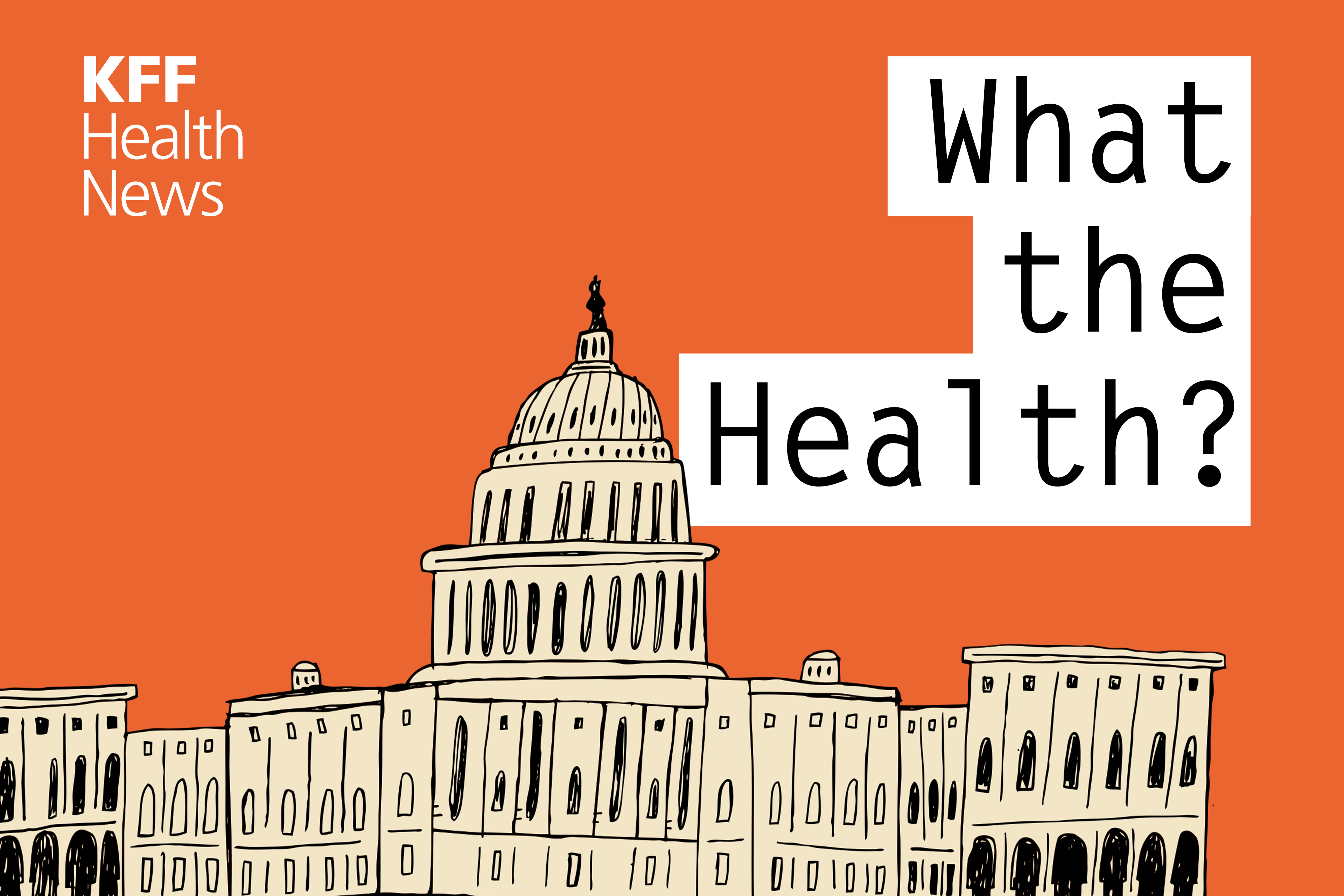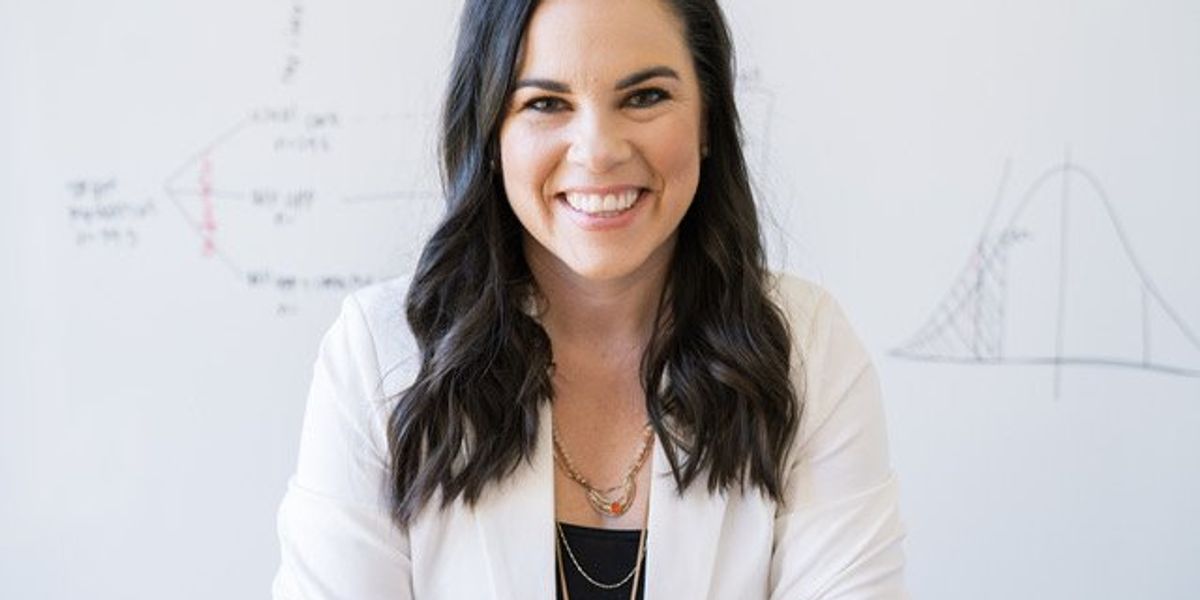How can healthcare marketers and executives engage doctors in impactful storytelling to improve patient outcomes? In this podcast, Dr. Douglas Flora, Executive Director of Oncology Services at St. Elizabeth Healthcare, shares actionable strategies to overcome doctor reluctance and create powerful, doctor-driven marketing programs.
Dr. Flora explains how he aligns marketing with what motivates his doctors by focusing on mission-driven campaigns. These campaigns help engage doctors more deeply and lead to better patient outcomes. He shares how tools like annual video sessions and patient stories can make screenings feel more personal, especially in high-risk communities.
Dr. Flora also talks about how approaching marketing as a shared mission adds value to the doctors’ work and boosts their confidence, particularly through media training.
For healthcare marketers looking to build effective, doctor-led campaigns, this podcast offers practical advice on how to get doctors more involved and improve patient care.
For your reference, here are links to the Harvard Business Review article and DISC theory referenced in the podcast:
I highly recommend listening to our podcast in its entirety for more in-depth coverage of how a mission-driven approach to healthcare marketing can align provider goals with patient outcomes and how marketers can effectively amplify those successes.
Want to explore this topic further? Check out the following Healthcare Success blogs:
Note: The following raw, AI-generated transcript is provided as an additional resource for those who prefer not to listen to the podcast recording. It has not been edited or reviewed for accuracy.
Stewart Gandolf
Hi, everyone. Stewart Gandolf here. Welcome to another podcast.
And I was just speaking offline with Dr. Flora about how excited I am today. Welcome, Doug. Good to talk to you.
So Dr. Flora is Executive Medical Director of Oncology Services at St. Elizabeth Health Care. He's also Editor-in-Chief of AI at Precision Technology.
So again, welcome, Doug. I found you, as we talked about a little bit offline, I often interview people that speak at conferences that have really compelling topics.
so the topic that caught my eye was Secrets of Marketing with, to, and for doctors. So I'd love to get a sense of the talk you gave, where you gave it, what was it about?
Let's just start with the beginning and we'll take it from there.
Doug Flora
Yeah, thanks for having me, Stuart. That was an interesting one. So I'm a medical oncologist. I see cancer patients downstairs in my cancer center.
This one came across my desk, I think, through LinkedIn. And it was an interesting one because there's a group that we'd worked with before a writer girl.
My hospital system had worked with and I think they found me more approachable than others that they were trying to work with.
I think that's the gentle way I'll describe it. But there's been a general reluctance or little warrants, I guess, for working with providers because we're busy and we can be demanding and, you know, we have our own needs.
And so one of our colleagues, the writer, grow invited me to participate in a panel in a seminar in Las Vegas.
And it turned out to be a blast. Not my typical panel discussion on the topic. Usually I'm sitting there talking about research trials and artificial intelligence.
And this one was much more about how do you connect with your audiences? how do our marketers connect with our providers?
Stewart Gandolf
know, it's such a great topic, and we're going to talk a little bit about, you know, we just actually wrote a blog post not too long ago about this, like, I engage your doctors and the fact that you've covered the same topic I love.
And of course, you know, the, well, I want to get your input on this. Why do you think it's an important topic?
have some of my own thoughts I'll share, but I'd love to hear, you know, this obviously was a fun topic for you, and I'm assuming it went over great with you.
Why do you think it's important?
Doug Flora
For me, especially in cancer medicine, but healthcare in general is a team sport.
It's a complicated thing with thousands of moving parts, and a lot of what I do as a cancer doctor is messaging to people out in my community, trying to prevent them from needing me.
And so, I got involved on the, and we don't even call it marketing, we call it storytelling side. Not trying to drive volumes but trying to drive screening and prevention and early detection and those sorts of things and found myself in this strange role for my healthcare system and for my cancer program.
a storyteller in chief and became familiar with these concepts because it was really important to me that patients heard the messaging through our marketing department that the doctors believed in to save their lives.
Stewart Gandolf
I love that and you know it's funny one of the things that in our own company and people I know in this field you know they you know like they don't want to necessarily be a clinician but they still want to help right so if they can help amplify that message and then particularly today with so much misinformation out there to get some credible medical advice is great and I love that that's your motivation because clearly the consumer needs that.
You know also the part I was going to talk about as well as you get that information out it's so important for a digital marketing standpoint to you know have you know both talks a lot about E-A-T you know experience expertise authority and trust and having doctors at the center of this can be built exactly that so if you're trying to build a website that has thought leadership
in the community, as well as nationally, you're able to amplify the message a lot more, your money or your life topics, as Google sometimes talks about, and healthcare is one of them, right?
It's a very, very important topic. Tell me about that note. Some of your favorite maybe anecdotes of recent things you've been doing with your own hospital.
I'd love to hear some of your stories of how you're able to actually, you know, get the message in the community to help drive the screenings. I'd love to hear a little bit more about that.
Doug Flora
I'm very fortunate. I live in a very mission-driven hospital system.
The team rose together, and we really have thrown ourselves in for a lot of investment and attention to lung cancer screening.
I'm practicing in Northern Kentucky just outside of Cincinnati, and it's the number one state in the country for lung cancer diagnoses, late stage lung cancer diagnoses, lung cancer deaths, when we started this.
realize that is where we could be great. And so, we put a lot of structure and investment in our system, as well as marketing messages to our physicians and our community about the importance of lung cancer screening.
And lo and behold, it was an effective message people recognize that there was some urgency here a problem to fix.
And then with the right messaging and with the right coordination between providers, administrative teams, operational teams, and the marketing team, our community really bought in.
And so I think we're in the top few cancer centers or programs in the country for lung cancer screening.
And Kentucky now I think moved up the number two of all the states for a good lung cancer screening, which doesn't happen much in health care indices for Kentucky, as you might imagine.
Yeah, it was on the back of really storytelling and talking about the lives and talking about the mission.
Stewart Gandolf
That's fantastic. I love it. So that's a deeper mission and deeper purpose in just getting more clicks or more traffic to a website you're saving lives.
Do you ever get to actually meet patients that have come in from the screening directly or indirectly from the work you've been doing?
Doug Flora
all the time and They're a big part of our marketing story.
They approach us and say if you ever need me You know dr. Calhoun took out my lung cancer and saved my life I'd love to tell people what he did for me one of our thoracic surgeons and other so yeah It's a big part of our program here a lot of print a lot of Commercial type stuff a lot of patient testimonials I just filmed one the other day with two patients down in our resource room Because I think their stories are very compelling and a lot of times they have heard this from doctors for 20 years and not gotten the test done But if you find out that colonoscopy not that big a deal from patients whose life was just saved at colonoscopy then That might cause that uh what you guys call it call the action, right?
Stewart Gandolf
Yeah You know it is funny how that works the idea of using storytelling and if they don't know somebody directly in direct way through storytelling To help communicate that and it's funny.
was I was thinking of people that I've known that have had colon cancer or people I've known that had shingles or whatever, like, where there's like, wait, who's two young to have shingles, for example?
wait, okay, I need to write that vaccine after all. So it happens for sure. The, you know, the mission-driven part is awesome.
Do you have anything to say about that? Because that's, you know, I find that I'm working with lots of hospitals, lots of providers.
Some are just, you know, they're, I think they're all doing good, right? But some really take it, like, they're in their mission, like, they just believe it's their job to promote into community and to better health care.
There's a continuum there. And it sounds like you're at the far end of that, which is great. Any lessons from that?
And, you know, it, does it feed itself over time?
Are you able to help push that agenda? I'd love to hear.
Doug Flora
a little great point that you raised there, because it's not, it's not necessarily in physicians' DNA, right, to be marketers.
It builds cringy to us. we hate that word. I don't like billboards with my face on. I don't want any of that stuff.
What I really want is things that help us mutually help patients. Like you said, when you wake up in the morning, you want to make a difference.
Stewart Gandolf
Right.
Doug Flora
an impact on the world, you want to make a dent in humanity like Steve Jobs said. Our marketing team here, our cancer fighters, our social media team, our cancer fighters, our public relations team, our cancer fighters, and we've embraced them as members of the team, recognizing that they have unique skill sets that help patients, just like I do.
And so I think that's where our system might be a little apparent is that everybody hears fighting cancer. The people are in the cafe making coffees right now are giving my team energy or giving that patient a piece of pleasure that day.
And so we've embraced that idea that this is a team sport. And maybe that's why we're so strange. Nobody likes the idea that you have to market yourself to generate volume or click through rates or the other things that you guys are required to prove utility.
But Everybody wakes up and thinks, gosh, it would be great if I collapse into my bed tonight and I say to life If I could make a meaningful difference for someone.
I think that's the power of messaging is your people your audience Using their God-given skills to help people like me use my God-given skills, right?
It's really beautiful when it works.
Stewart Gandolf
That's fantastic. You know, I think that mission is so important and it's a good reminder. It's really easy in the day-to-day And it's going to remind me with my own team to remind them we do talk about that We work with some serious stuff on our team And you know, for example, one of the categories we do a fair amount of work in is addiction and we have people on our team You know, have conquered addiction.
So it's very personal and very meaningful to them to do that And you know, has an experience one or the other, but I love that I bet your culture is pretty strong over there.
They feel like they're all fighting cancer together Anything that's about that.
love to think that's really a compelling thought
Doug Flora
It is powerful for all of us.
mean, we are all one step away from needing a cancer doctor and everybody with if the patients are caught with early diseases.
that is something that marketing can do better than doctors.
Stewart Gandolf
That's fantastic. So all right, so again, I would just having worked with a lot of different providers. I would say you guys are on one side of a continuum.
There's everybody again must be part of this. Some have more buying than others. Marketing departments in a lot of hospitals are what I call the kids table.
They're not even in the roof. They're not even considered. So in fact, in that case, when we talk about this, little bit offline, a lot of times, in those cases, though, marketing team may not even have much experience dealing with doctors.
where do you feel like hospitals? What are the hospitals, practices, markers? are they missing? what opportunities, if they're, know, somebody's listening, I'm going to go over to the doctor for us, but assuming they can't, like, what are they missing?
what can they do to start marching in the right direction?
Doug Flora
You know, I could say this is something I tell my teams. It's something I tell my kids. is it something I tell just about anybody who will listen without rolling their eyes, there is a fantastic article in Harvard Business Review a few years ago written by Clayton Christensen and it's called The Job to be Done and it is gold.
It is just seminal human being-ness and what he talks about in this is why McDonald's is able to sell more milkshakes at this place or why this particular approach to solving a problem with refrigeration and India worked and it's a it's a victim that should be as present oncology as it is in marketing and that's identify why I would hire you as a doctor, Doug, why I would hire you over the other doctor, why I would hire your health system or that machine or that tool or whatever and you guys talk about it all the time that you don't sell the drill and you sell the hole, the same thing for the customer's job to be done in health care, my patients want less terror, they want better outcomes, they want less suffering, they want fewer.
side effects. That's my job. Your job might be if you work for health care system or hospital system or a group of physicians, help them sell their wins to their community so they have more wins.
I think part of being the marketers, identifying the customer voice, right? what is it that defines a win for that group that you're working with?
So my large hospital system might want a completely different thing. I can afford to be mission driven here because this is a mission driven place with a mission driven senior leadership and board.
But if you're in a private practice office that's barely surviving in some very, very small town in Missouri, you might just want to keep the doors open.
And so the marketer for them, it might be driven around volume. For me, it's not necessarily. We like volume because we believe in our product, the care team.
not to digress, but I just spent an hour and a half with our two marketing people here. And it was all about it.
It was all about I am so driven to get people into my building, not because it's profitable. for us, it's often not if they're commercially insured patients, maybe not government insurance anymore, but I'm eager to have their cancer care experience happen under our roof where they're touched by a navigator or a massage therapist or a food pantry or a geneticist or just a team of people care about them.
I want to save them from being on some conveyor belt somewhere else in rapid-fire clinic.
Stewart Gandolf
Yeah, for sure, that totally makes sense. So the, again, I think that's just inspired. I love it. I'll show this to my own team because I think it's a good reminder for everybody.
Doug Flora
Look up the article, it's good.
Stewart Gandolf
Yeah, I will, for sure. Absolutely. Every time I do one of these, if get a good reference like that, that'll be in the notes for sure.
again, if you have a marketing team and we were joking about this a little bit off time, sometimes they're little intimidated and the doctors aren't always necessarily, if they're uninitiated to this process, excited.
how do you recommend engaging them? how do you, if you're... talking to the marketing team.
They haven't had a lot of experience. What kinds of tips and pointers would you suggest?
Doug Flora
You know, I think you start where you are, work with what you have, do what you can for one.
It's just the realities of medicines that doctors wake up two hours behind every morning. I think to effectively communicate with them, you have to be efficient.
There has to be a value add and the mission is a huge one. You have to be, I guess, respect for the fact that they are going to be somewhat distracted most of the time because they've just told somebody they're dying or they're getting, you know, power texted with an MRI result that's come across while we're talking on one of my beloved patients with brain metastases and I'm anxious for her because she's having new symptoms.
So sometimes it has to be a structured thing. what I have suggested to other teams who've asked them when we were in Las Vegas was try and consolidate this when you can.
Our team does a phenomenal job with this. What I mean is when I get a new hire who is not super busy ywt
does he yet? We take them for like an hour and a half on video. Makeup is their new crisp code for questions, they get a little media training, and we let them tell their story before they know any better.
But we make use of that hour and a half so that we have b-roll in footage and quotes and things we can turn into infographics for the rest of the year on every holiday.
And we'll run them through a script that has their entire year's work. Let's talk about you want to go into medicine and then we see that parsed out all year long by our media teams.
And I think that's a brilliant way to do that. So that way you get the doctor once for an hour, but you get a year's worth of copy or a year's worth of content that you can then parse out as you need to as the year of the falls or as the year progresses.
So that's a very attractive way for me as a doctor to consolidate that. Rather than I need four hours a month, that's not going to happen with most physicians.
Stewart Gandolf
Yeah. And you mentioned the reality is to work with in oncology. only worked with tons of ecology businesses and practices over the years.
And exactly that, know, somebody comes out of the room, just told somebody they're terminal, it's a little hard to switch on a dime there.
This is a real stuff we're doing, particularly in oncology. I love that you guys are planning it out, that's great.
And you mentioned media training, some in any human cat's population, people are going to better things than others. So I love that you're doing media training.
Are there people you just can't convince to participate or is pretty much, yeah.
Doug Flora
Sure, I've got two particular physicians who I think are amazing humans and they won't even do radio.
Stewart Gandolf
Okay.
Doug Flora
So you do, you ride the horses that you got and I've got a few people who recognize the need and have skill and initiative and they want to participate in this.
So if I'm not available for some interview for a magazine or for a newspaper or some TV news appearance or whatever, I know the next two I'm going to call because they've enjoyed it and they perform well and so that you tend to find your champions within each division, I would suspect.
Stewart Gandolf
You know, it's true and it's funny that I find that, you know, again, in any population you're going have and it depends on the business, right?
specialty. Like if you were mentioning earlier in cancer, lot of oncologists, they're so busy that they don't need any patients.
It's not certainly a big issue for them. But there are specialties who work with like, for example, orthopedic surgery where one doctor is more forward, more out there and can build his practice and lap the older doctors really quickly because they like this stuff.
enjoy this stuff. They're good at it. So we see that periodically. So, you know, on that note, you know, you have stars.
How do you leverage them? know, you've got people that are good at it. They enjoy it. They like it.
Any anecdotes of, you know, because that's in my experience, it's always great to double down when people are good.
And so is that something you guys can do?
Doug Flora
Yeah. I mean, I hired for that. I picked people specifically in interviews because I saw the potential there to help me outside of the building, as much as inside the building.
And so that's a conscious decision, sometimes strategic, is to make sure you have people in your team that can tell a story, can tell a story.
We use the DISC training here. I don't know if you, this or if you were sure, so every team needs an eye.
And if you're unbalanced and it's all driver executors, then you're not going to everyone who is comfortable or excited to tell the story, your C's and your S's are worried about precision and support, get the eye out there and let them build teams.
That's obviously what I am. And my role here in our cancer program tends to be more around the team building and culture and support and initiatives and innovation than the back of the store stuff.
We have really, really strong people who help me do those things much better than I could myself and I try and stay out of their way.
Stewart Gandolf
That is really compelling. I think that's the first time I've heard a doctor that considered is that. And for the listeners who are not familiar with DISC, DISC is a model.
You've seen different models with different names, discus leading ones, where some people are analytical, some people are controlling, some people are influencers, and others are more sort of missing, supportive.
So the DISC program is an outstanding, in fact, a link to that too. It's a model we've taught to, and I learned a slightly different variation, but it's a terrific way of categorizing, making quick decisions on people.
And eventually when you get good at this, you do it naturally, right? In terms of patient communication, and how do you talk to a patient in a way that they will hear you or talk to your colleagues?
It's fundamental. On anything we should have talked about, that we'll talk about your advice a moment, but what we've missed, what things would be really intriguing as somebody who's thinking about this kind of a topic, engaging doctors to get the word for better patient care, for better results of the hospital or the business, anything else we should talk about
Doug Flora
maybe could I provide some use cases for how you might approach a physician or things that a physician would be interested in participating in.
Stewart Gandolf
I think that's awesome.
Doug Flora
Yes, please. I'm running my list of my doctors in my in my head here. Because some of them won't.
Stewart Gandolf
So I love it. Do it. Let's go for it.
Doug Flora
You know, it's interesting for different providers. There are that are desperate to increase clinical trial enrollment because they really believe that research is the way to cure cancer, finding new drugs, developing these trials.
And so for a person on the market side, maybe you engage them in helping them sell their vision for what clinical trials can do while helping the institution at the same time.
I have some that are absolutely reluctant to engage in any social media at all. We use sprout here and I have doctors.
I will never get to. an email about that and they will never repost, even if it's just a one button to share on social media.
But that doctor is really, really willing to go down and do an inner-city cancer screening event with six hours of her own time, right?
And so it's different. People are motivated by different things. And I think that's where I look for the levers that we can pull for the greatest good.
As a marketing team, you probably have identified which physicians are your hyper articulate people, the people that you really want telling your story.
The introverts probably are the wise ones, right? They may not be perfect for something like this because I enjoy these sorts of conversations myself all the time, but they might be the people who would really, really help contribute to an event because they want to be in there looking for abnormal moles in a cancer screening event or something.
So everybody has their thing. And I will tell you, there are very, very few providers, nurse practitioners who don't want to help.
Some of them may not be camera friendly, camera. That's a terrible way to say it—not view cameras as friendly, but they are absolutely skilled in other areas.
I think we found that some of our people, we will feed them articles and let them edit and approve articles that come out with their byline.
That doesn't require them to speak live on camera, but it lets them talk about things that they're passionate about.
And so sometimes it's finding those unique skill sets, say, well, okay, that person doesn't want to do something with a microphone, but she writes really well so let’s have her to an op-ed, you know something like that.
Stewart Gandolf
That's awesome. That's awesome advice. I feel like really what we're talking about here is playing people's strengths, right? And so the, I guess, just thinking that through, it's the attitude of the internal team, if you're working with an internal team or with an agency to plan this out better, think about the needs you're trying to make.
then really, going back to what you mentioned there earlier, another way looking at that is you're still appealing to their soft entries.
like I want to do, I want to be published, I want to do more clinical research, I want to help more people.
Whatever the case may be, you can show them why this matters and when I delve into them, that's going to be a lot more effective.
Doug Flora
That's where I would like that customer's job to be done because a private practice doctor has different goals than an academic person trying to make their bones and earn tenure.
so the marketing team consolidating those things together makes a lot of sense to me. And being very intentional about what do we need here, go where the doctors are, we have all provider meetings, we set up a room over there, that's where they get their headshots.
They're there anyway, we got it Thursday night, there will be a guy there with a background and a good camera and make up your headshots done because they've got a captured audience there anyway.
I'd say the marketing team, that's a really nice way is go where the providers are and you will find them, you don't have to chase them down.
We come together quite a bit in meetings and if you are there and you have 10 minutes on the provider menu to talk about the imports of them,
Sharing your social media. There you go. That's a start.
Stewart Gandolf
That practical advice is so real. haven't found that exact same thing. can do trying to narrow people down and get them to come to an interview in the middle of their busy day.
It's going to be really, really difficult. But doing it in place have to go anyway. a great idea. There's not as many excuses to get a chance to prep them.
Well, Douglas, I've really enjoyed speaking to you. This was, you're good at this. I love it.
Makes my job easier!
I got some good insights and I invite you to come back anytime. If you're, think of us as an extra vehicle that you can share your story to your hospital.
Sounds like you guys are doing some great things and it's been a pleasure meeting you.
Doug Flora
Likewise, pleasure meeting you. Thanks for having me.
Stewart Gandolf
Thanks. Seriously, great job. I appreciate your time. is 100% true. Very concise, very clear.
I learned some things. That's really great. I love it. I love your mission. is inspiring. We work with clients of all different kinds of businesses.
You know, hospitals, nonprofits, private equity on groups, you know, all the whole gamut. But, you know, to remember why we're all doing this, I think is great.
And with that message internally, that's going to bring out the best of your people, for sure.
Stewart Gandolf
So, just another question is, what are some of the benefits? What are some of the tangible side benefits of the kinds of work that you’re doing? I’d love to hear more about that.
Doug Flora
Besides saving lives, right? Haha.
Stewart Gandolf
Yes, absolutely! Haha. That is sort of presumed, but it is a good reminder to everybody.
Doug Flora
You know, this is my brother really cares about research, let’s do marketing to get more patients on clinical trials because he believes that’s how cancer is going to be cured. We have people who want to do cancer screening. If we get that out into the community, we save more lives by cancer screening and by the people that run the program feel proud of their jobs. You know, for you and I as we’re talking about this, the marketing approach of this, the wins for the doctors are the same as the wins for the people in marketing.
You make the world a better place. You make your day more efficient. You brought me in contact with people that enhanced my experience as a human being And the things that you bring don't have to just be click through ratings and volumes It can be other experiences.
can be other contacts or networks for me my own Your journey on social media. I've met some of my very best friends on boards that I was invited to because of my social media accounts It was strange as it sounds now.
These are people that are texting me all day every day through Associations, I've joined or boards that I now sit on that I might have not been invited to had I not been visible It's giving me some opportunities to work with some really brilliant people to solve some complicated problems Which is one of my love metrics, so that's great.
Stewart Gandolf
Well, I'll just double that we talked a little bit offline about LinkedIn and LinkedIn is the new thing, right?
That's really come just so far in the last couple years and you know We've been doing as an agency content marketing before that world was made up for our own sake and
for our clients and you know the unique thing about getting your story out just like you know I were talking now is and just going back to what you said some of my best friends in medicine were podcast guests where people I met directly or indirectly from that and this particular medium is unique because people get to know you.
It's like it's a little different than reading an article so again that was awesome.
Thank you again.
Doug Flora Thank you.



















 English (US) ·
English (US) ·